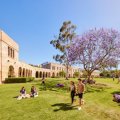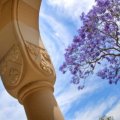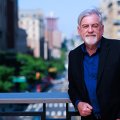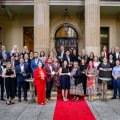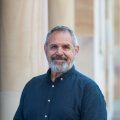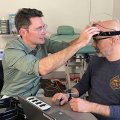Learning doesn’t just happen in a classroom, with academics keen to prove it even happens while families are on holidays.
In fact, academics John H Falk and Lynn D Dierking are so keen to share their ideas about “free-choice learning”, they have taken their research agenda half way across the world.
The two Oregon State University professors have been awarded Jim Whyte Visiting Research Fellowships at The University of Queensland’s School of Tourism.
They plan to work with academics from the school to find out more about how people learn outside classrooms, with an emphasis on cultural and eco-tourism.
“In this situation, people have actively chosen to put themselves out there to learn and grow as individuals,” Professor Falk said.
“The questions we want to ask are related to how people use experiences such as a holiday to promote personal growth and learning.”
Professor Dierking said her research would study “the social and cultural dimensions” of learning, such as how people learn together when travelling with their families or peer groups.
The study would also look at how cultural tourism influenced communities, she said.
“Data we have on family learning shows people increasingly do not want to put their kids in daycare and then do something separately. They want to experience things together. They realise they can have fun and learn at the same time,” she said.
This meant it was important for cultural and eco-tourism destinations such as museums, galleries, aquariums and nature reserves to understand learning needs and provide information for all members of a family.
“There is an impact and a role communities play in places where cultural and eco-tourism happens.”
Professor Falk said people in the 20th century were traditionally employed in manual labour and they valued “vegging” during their holidays. “Tourism was associated with escapism and bums on the beach,” he said.
“But in the 21st century, work is more about ideas and intellectual pursuits. People continue to pursue these ideas during their leisure, including when travelling. Cultural and eco-tourism are today the fastest-growing forms of tourism.
“Even cruiseline operators realise they have to give people an opportunity to go on cultural tours to interesting sites. And Disney also realises there has to be some kind of value-add beyond escapism.”
Professor Falk said his studies would focus on how people used their leisure time and holidays to satisfy their intellectual curiosity and how their backgrounds and interests played a role in shaping the outcomes of cultural and eco-tourism experiences.
The two academics will be welcomed to the school as the first fellowship recipients on May 6. They expect to work with the school’s academics for several years.
Media: Erik de Wit (0417 088 772)
.jpg)
